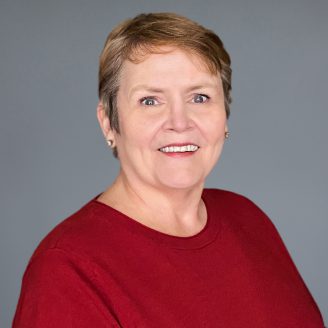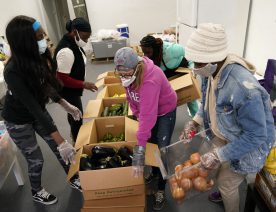
April 22, 2025
Seventy-three percent of the public has donated money to at least one charitable, religious, educational, cultural, or political organization in the past year. Over the same period, nearly 8 in 10 have donated material goods or time or contributed to a crowdfunding campaign.
About 4 in 10 donate to organizations that help people in the United States who are in need or to religious institutions. Most people have donated at least $50 to charitable organizations over the past year. Among those who donated money, 50% have given at least $101.
Charitable giving of different kinds is generally more likely among older and wealthier adults. Differences between adults younger than 60 and those 60 or older are particularly large for donations to organizations that help people in the U.S. who need basic necessities (33% v. 55%) and religious institutions (50% v. 31%). Adults making under $50,000 a year are less likely than those making more to disaster relief organizations (21% v. 35%) and organizations that provide food and shelter to those in need (30% v. 47%).
And Democrats are more likely than Republicans to give to international aid organizations (23% v. 9%), civil rights organizations (18% v. 6%), cultural or arts institutions (20% v. 6%), or environmental organizations (21% v. 6%). There is no significant difference in donations from Democrats and Republicans to churches, mosques, or synagogues, educational institutions, organizations helping Americans in need, or health related groups.
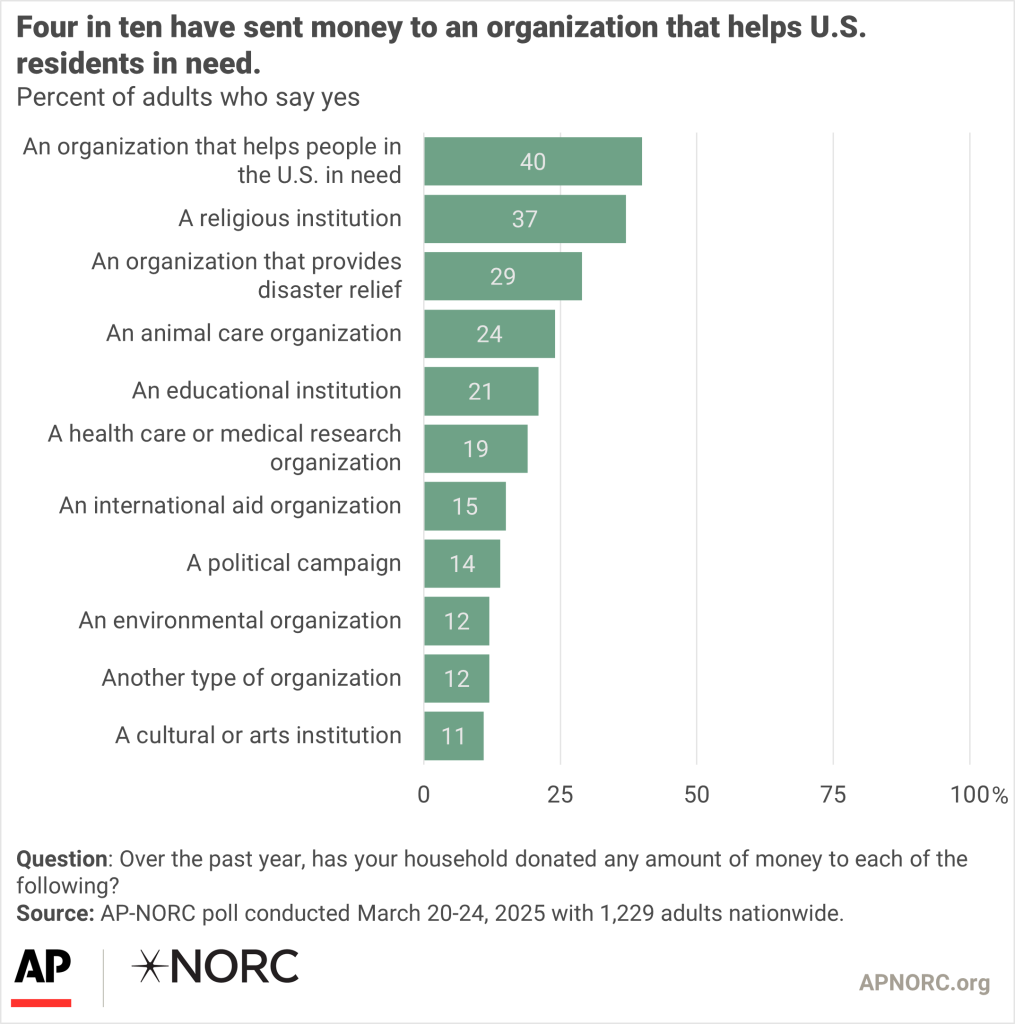
Most adults have donated food, clothing, or household items in the past year. Less than half have volunteered their time to a charitable organization, provided non-financial support to people in their community, or sent money to a crowdfunding campaign.
People with household incomes of $50,000 or more, college graduates, and those age 60 and older are generally more likely to make charitable contributions.
Though differences emerge between subgroups across various types of contributions, some of the most sizeable are within food, clothing, or other household item donations. Women are more likely to donate food, clothing, or household items than men (80% vs. 61%), as are college graduates compared with non-graduates (81% vs. 65%), and people 60 or older compared to younger adults (82% vs. 66%).
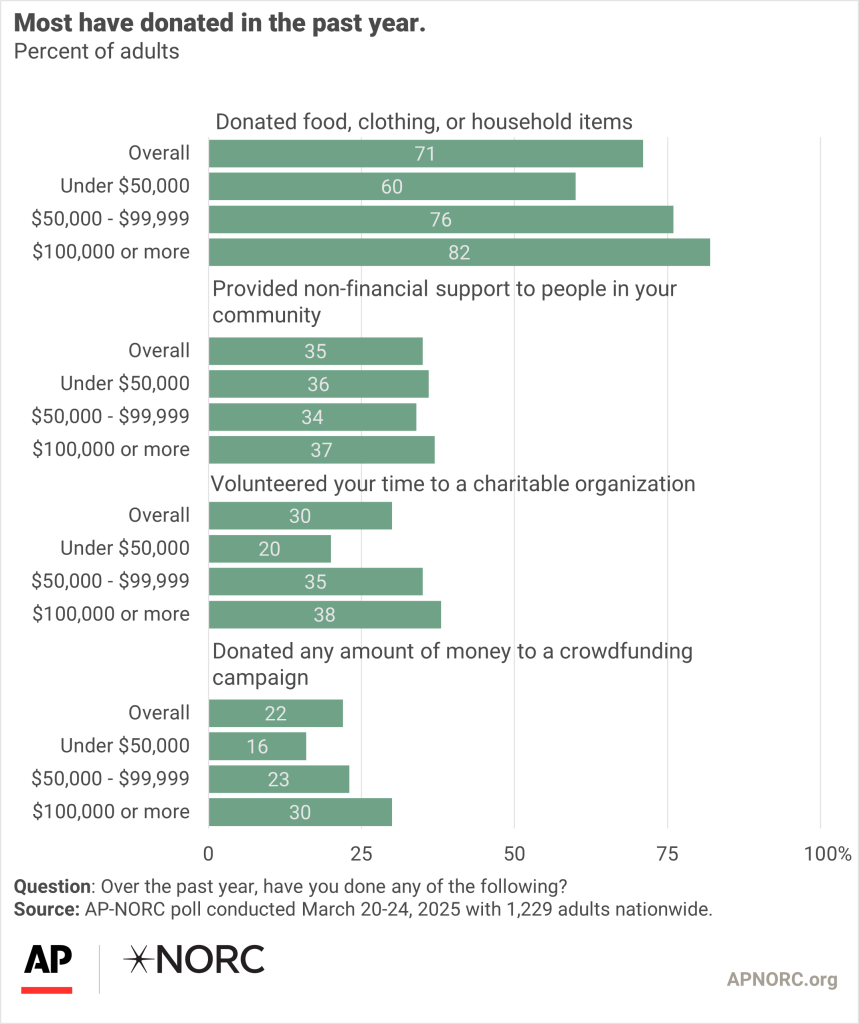
Seventy-six percent of the public has given at least $1 to a charitable organization in the past year. A majority have given over $50, and 3 in 10 have contributed $500 or more.
Overall, those with annual household incomes of at least $50,000 tend to donate more than less affluent people.
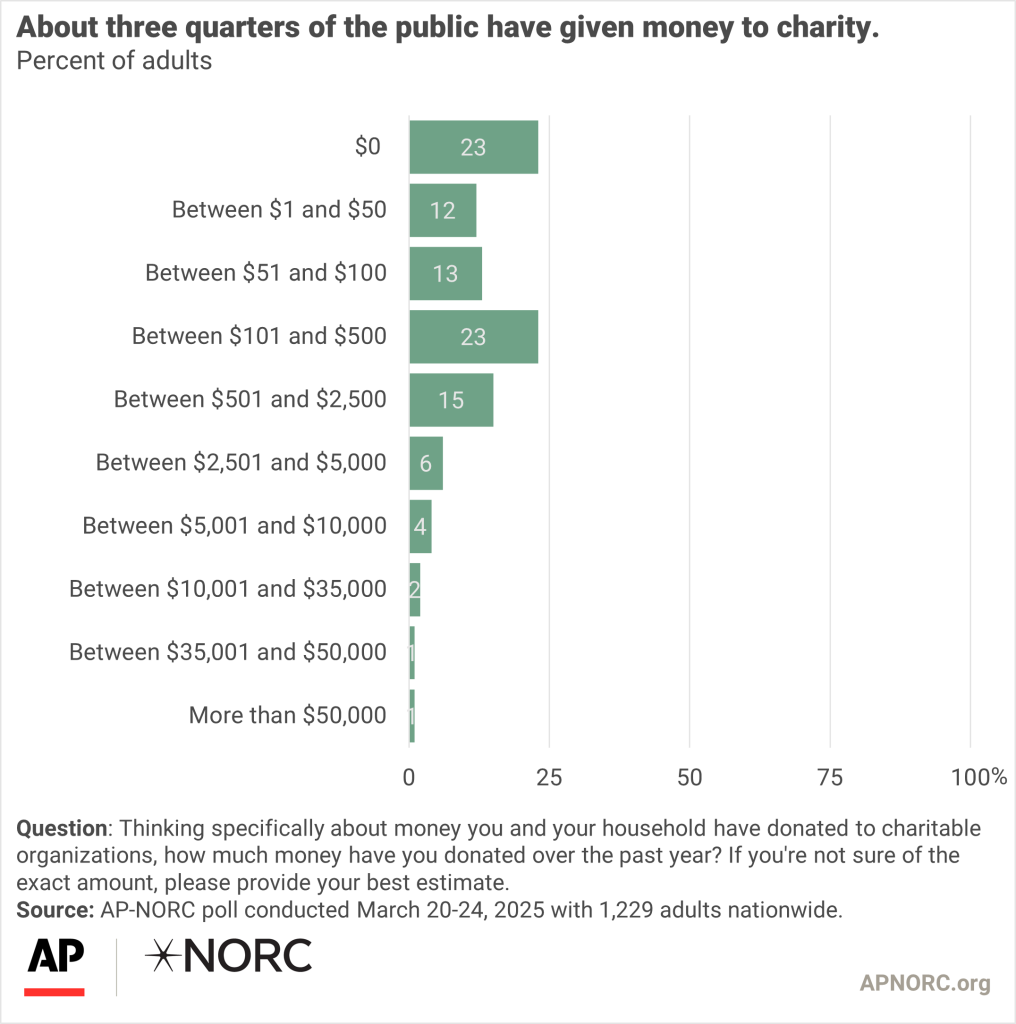
About three quarters of the public believe it is very important to give to friends and family members when they are in need and half say the same when it comes to neighbors or people in their community. The number drops when asked about people who live elsewhere in the United States or outside of the country.
White people are more likely than Black people to say it is important to give to friends and family in need (76% v. 54%). Hispanic people tend to say it is important to help those living outside of the country more than white people (29% v. 14%).
Democrats are more likely than Republicans to say helping those living elsewhere in the U.S. (33% v. 21%) and outside the U.S. (28% v. 11%) is important. Similarly, women are more likely than men to prioritize helping people elsewhere in the country (31% v. 21%) and in their community (54% v. 38%).
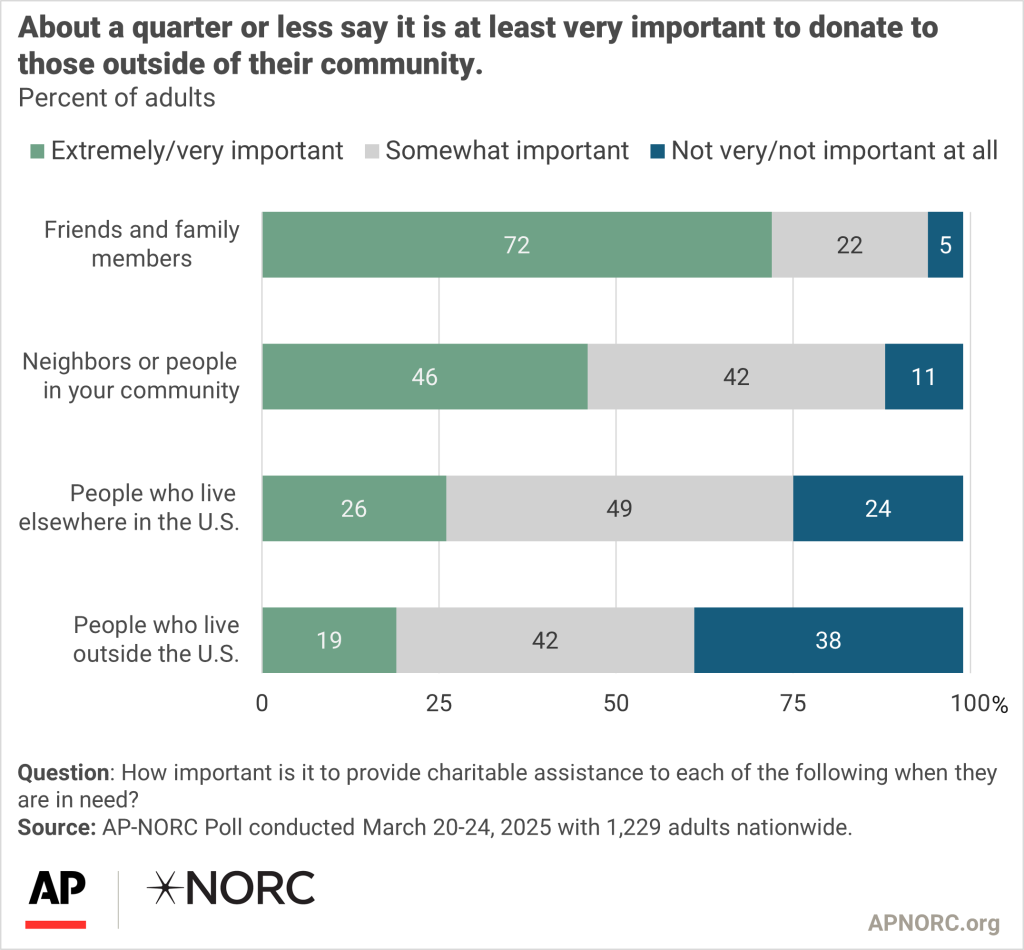
Most adults say at least some responsibility falls on the government, religious and non-profit organizations, and the very wealthy to help others in need. Fewer, but still more than half, also say corporations and other individuals like them carry a similar amount of responsibility.
Partisans assign responsibility to religious organizations at similar levels and majorities of both parties say every group asked about bears at least a moderate amount of responsibility. Still, Democrats tend to say corporations, non-profits, people like them, the government, and the very wealthy are responsible for helping people in need more than Republicans.
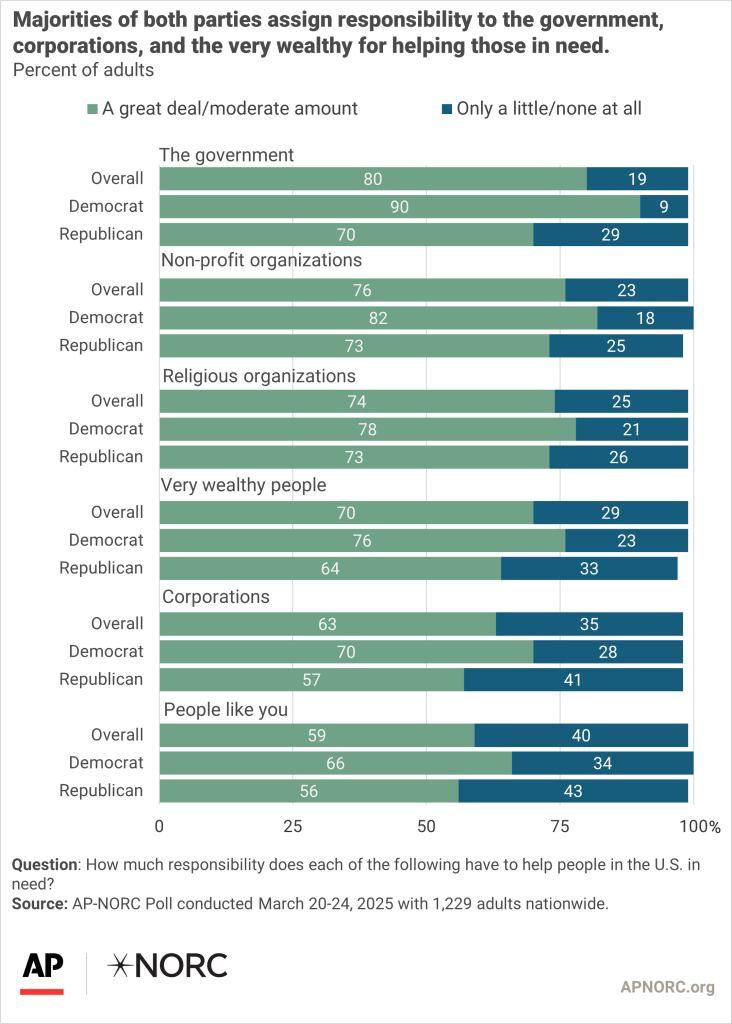
The nationwide poll was conducted March 20-24, 2025 using the AmeriSpeak® Panel, the probability-based panel of NORC at the University of Chicago. Online and telephone interviews using landlines and cell phones were conducted with 1,229 adults. The overall margin of sampling error is +/- 3.9 percentage points.
- Suggested Citation: AP-NORC Center for Public Affairs Research. “Most Americans have donated to those in need within the past year” (April 2025). https://apnorc.org/projects/most-americans-have-donated-to-those-in-need-within-the-past-year




